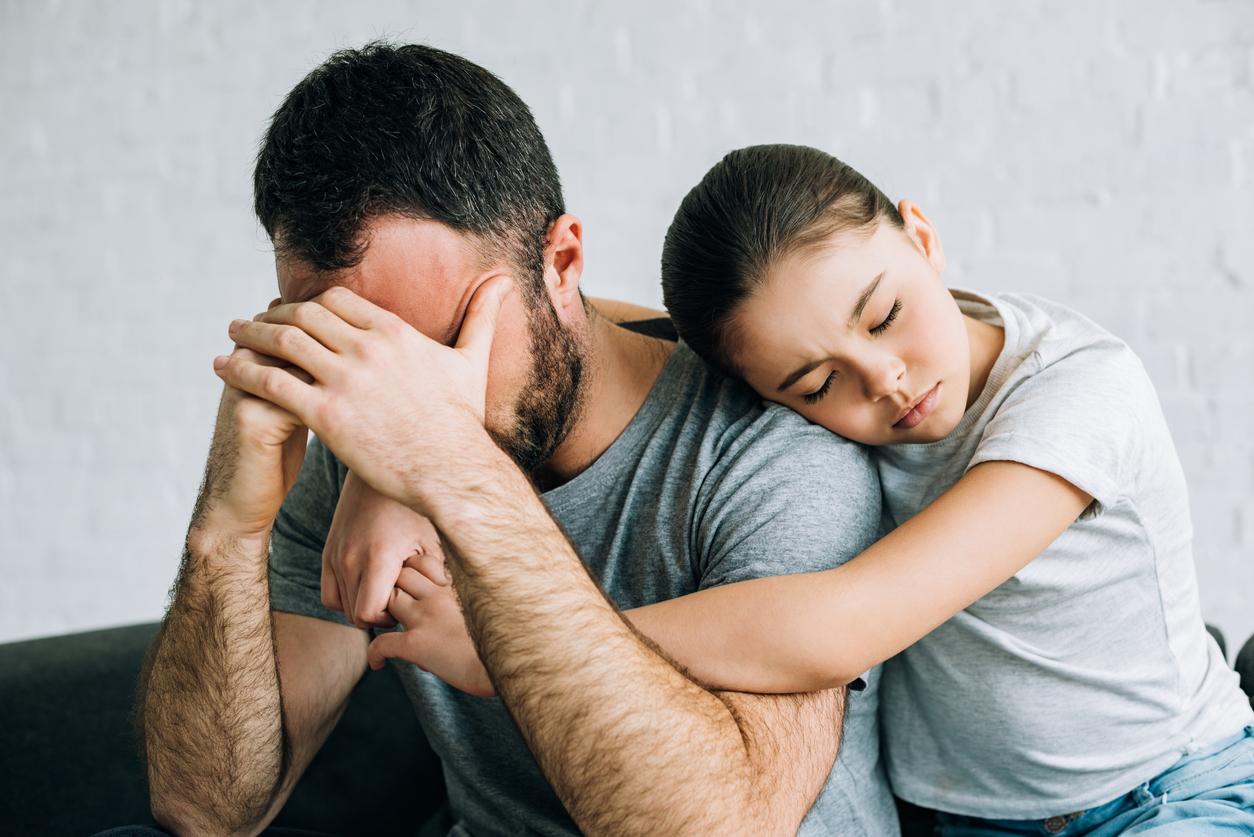Fathers’ depression has been linked to an increased risk of the same mental illness in their children.

- Fathers’ depression was associated with a 42% increased risk of depression in their children.
- Symptoms of depression can vary from person to person.
- It is estimated that 3.8% of the population suffers from depression.
Fathers’ depression was linked to a 42% increased risk of depression in their children, according to a new study.
How can we explain the association between fathers’ depression and that of their child(ren)?
This association can be explained by genetic factors, implying that children may inherit certain biological predispositions to depression from their parents, as well as by environmental factors, implying that children are potentially influenced by their father’s depressive state. .
To achieve this result, the researchers carried out a meta-analysis of 16 international studies “equivocal” having previously examined the association between fathers’ depression and that of their offspring.
Treatment of father’s depression: a family-based approach
“Our results show an intergenerational transmission of mental health problems and suggest that interventions in this area benefit not only the patient but also the family as a whole” write the scientists in their report. “This new data also highlights the importance of treating maternal and paternal mental health issues using a family-centered approach,” they add.
This research also suggests that by identifying and treating paternal depression, it is undoubtedly possible to reduce the risk of depression in children and improve their long-term mental health.

Symptoms and prevalence of depression
Symptoms of depression can vary from person to person. Some of the most common signs include persistent sadness, loss of interest in daily activities, changes in weight or appetite, problems sleeping, constant fatigue, decreased energy, difficulty to concentrate as well as feelings of uselessness or guilt.
It is estimated that 3.8% of the population suffers from depression, including 5% of adults (4% of men and 6% of women) and 5.7% of people over 60 years old. Globally, around 280 million people suffer from this mental illness.















